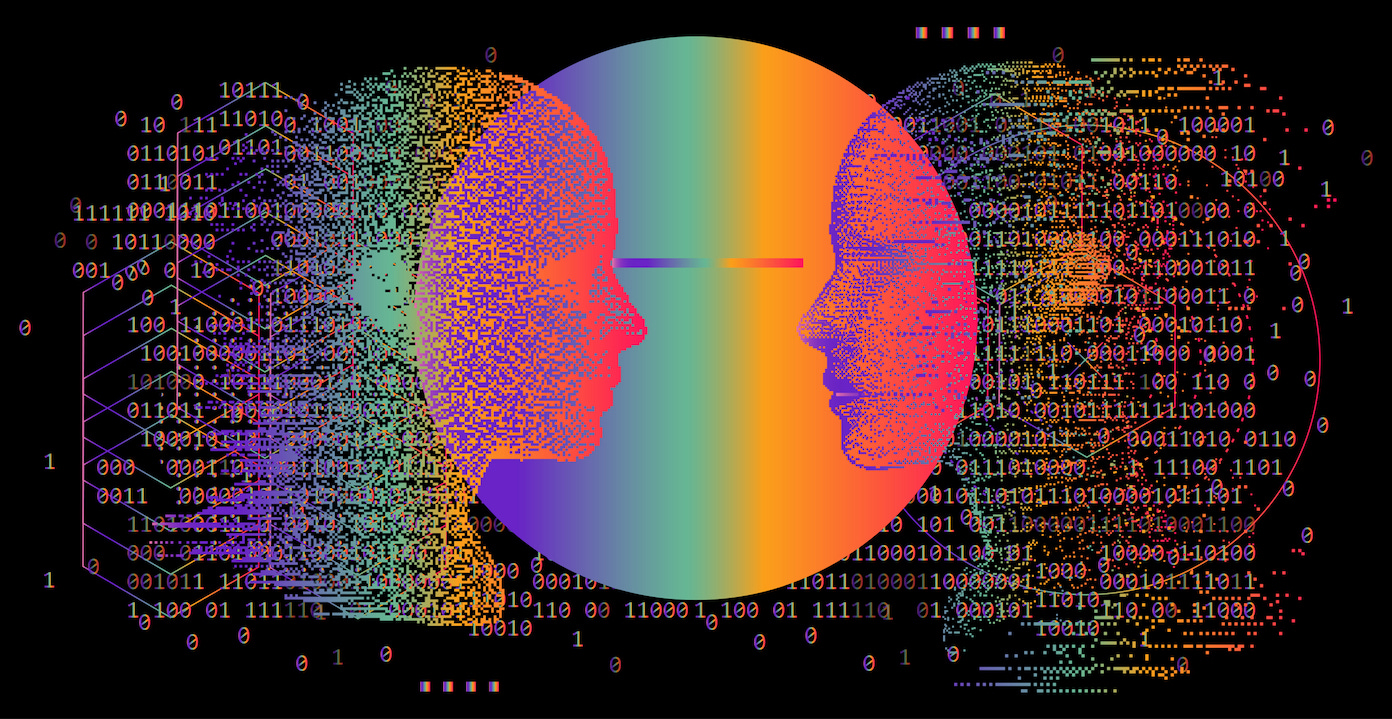E-Pluribus | July 20, 2022
The problems with viewing race as a binary, are progressive prosecutors the key to criminal justice reform, and the culture wars infiltrate Wikipedia.
A round-up of the latest and best writing and musings on the rise of illiberalism in the public discourse:
Richard Alba: The Racial Binary Is Inadequate
The debate about race is often framed as a societal conflict between whites and non-whites, or perhaps more concretely, institutions that have been built with foundations of white supremacy that creates injustices for non-white Americans. But at Persuasion, Richard Alba argues that this binary view of race obstructs our understanding of the increasing complexities of race in our society.
I am not denying the profound influence that racism has had on American history or the unjust ways it continues to affect our country today. But as the well-worn aphorism goes, to someone with a hammer, everything looks like a nail. Relying exclusively on a lens that focuses solely on a racial binary prevents us from seeing with clarity how the country that we live in is changing, particularly when it comes to the increasing ethnic and racial diversity in the mainstream part of our society, where advantages and power are concentrated.
To understand fully what lies ahead for the U.S., we need a second lens that reveals how the social significance of race is changing for many Americans as the social distance between many whites and nonwhites diminishes sharply, reflected in steadily increasing rates of intermarriage and racially mixed family origins. The new lens, in other words, can help us to see that individuals from different racial backgrounds are melding in everyday interactions in workplaces, neighborhoods, and families. Such a new perspective reveals that racial boundaries can blur and that a mainstream society historically monopolized by whites can take in newcomers and grow more diverse.
Now is a critical moment to expose the limitations of relying exclusively on a lens that yields only a binary picture of race. This lens has produced a distorted forecast of a racially divided American future, where whites are the numerical minority and nonwhites have become the majority. This so-called majority-minority future stirs uneasiness in many whites, who worry about how they or their descendants will fare in several decades, when, the forecast suggests, social power will have passed into the hands of Americans of color. This lens, in other words, stimulates zero-sum thinking about social status, and in its extreme forms, this uneasiness about a diversifying nation turns into panic and fury about the “great replacement.” The anxiety about a majority-minority future has propelled many whites towards Trumpism, a shift that has contributed to political polarization and widespread despair about American democracy.
With only a race-focused lens, Americans cannot understand a novel social reality epitomized by the rising number of young Americans who have grown up in racially mixed families, especially those where one parent is white and the other not.
Read it all.
Glenn Greenwald: Crime, Incarceration, and "Reform" Prosecutors: a Debate
Almost every election cycle, voters hear that certain candidates are “soft on crime” or that another candidate is pushing for “criminal justice reform.” But what exactly these terms mean and how to address issues like mass incarceration while still preventing crime is a subject of intense debate. At his Substack, Glenn Greenwald hosts two experts to discuss the subject in the context of a recall election of a San Francisco DA. An excerpt from Greenwald’s introduction:
The issue of crime and incarceration policy in the U.S. has always been hotly debated in American politics, but, for a variety of reasons, has received even greater attention over the last several years. In 2019, the Trump administration worked with numerous advocacy groups including the ACLU to engineer bipartisan enactment of the First Step Act, one of the most significant criminal justice reforms laws in years. That law — which applies only to the federal justice system — “allows thousands of people to earn an earlier release from prison and could cut many more prison sentences in the future.” Given that most prisoners are in the state system, that law will have only a modest effect on incarceration rates, yet was intended to serve as a model for providing greater sentencing discretion to judges and ensuring that prisoners are motivated to engage in good behavior and to rehabilitate by offering early release.
Another more controversial response to these strikingly high rates of incarceration has been to elect so-called “criminal justice reform” prosecutors in large liberal cities. These prosecutors vow to rely less on lengthy prison terms, particularly for non-violent crimes, and more on polices of rehabilitation and “root cause” solutions, particularly for drug addiction. But high rates of violent crimes and growing perceptions of a lack of public security have made these reform prosecutors the target of public ire, culminating in the failed attempt to thwart Philadelphia DA Larry Krasner's reelection last May, followed by the successful recall vote that removed from office San Francisco's DA Chesa Boudin in June of this year.
Whatever one's views are on these debates, it is hard to contest that America's exceptionally high rates of incarceration reflect multiple policy, social, and cultural failures. A healthy society does not imprison millions of its citizens. The question of why this is happening, and what the proper responses are, are far more vexing. Just as we aired a debate over Philadelphia DA Larry Krasner's reelection campaign last year, we asked two advocates on each side of this question to engage in an ongoing exchange about whether the fault lies with excessive punitive approaches to crimes or whether leniency is to blame. The following is an exchange between two writers, Ben Spielberg and Leighton Woodhouse, in the first of what will be a continued debate published here on Outside Voices between the two on the subject of San Francisco DA Chesa Boudin’s recent recall and what it reflects more broadly on the issue of crime policies.
Read the debate here.
Shuichi Tezuka: Cognitive Distortions
The culture wars have infiltrated Wikipedia. The platform is a prime example of a spontaneous order, self-regulated by its users and editors with codes of conduct and standards that police false and misleading information. But at Quillette, Shuichi Tezuka explains how the “woke” culture wars have created conflict within Wikipedia’s editing circles.
Before 2020, Wikipedia’s articles related to psychometry and human intelligence were mostly consistent with this field’s published literature, although many of these articles were somewhat outdated because there have never been many Wikipedia users with the necessary knowledge and interest to keep them updated. Under normal circumstances, Wikipedia articles increase in quality over time as more people contribute to them. However, for reasons that will be explained, the recent trend in articles related to human intelligence has been for Wikipedia’s coverage to become steadily more divorced from its source material. (In this article, when I refer to Wikipedia, I am referring specifically to the English-language version of the site.)
Over the past two years, there has been a collective decision by several members of Wikipedia that “scientific racism […] has infiltrated psychometry” and that the field must no longer be trusted.
[ . . . ]
In my 2021 paper, ‘Cognitive Creationism Compared to Young-Earth Creationism,’ for the inaugural issue of the Journal of Controversial Ideas, I describe how a large portion of attacks on intelligence research—and on psychometry or behavioral genetics more broadly—arise from attempts to discredit the small sub-area of intelligence research that deals with differences between racial or ethnic groups. The FAQ item quoted above was created for Wikipedia’s “Race and intelligence” article, which has been the epicenter of the recent changes to how Wikipedia covers topics related to human intelligence. That article was the first to be changed based on this new set of assumptions, and the changes have subsequently spread outward to Wikipedia articles about a broader range of topics.
Read the full piece here.
Around Twitter
Jesse Singal corrects misinformation on a police shooting in Kansas City.
Finally, yesterday, there was a Senate Rules Committee hearing on The Disclose Act, a bill that many free speech advocates, including the ACLU, find concerning for its potential to chill speech by exposing donors to issue groups. The Institute for Free Speech’s Luke Wachob has a short thread on the hearing:









